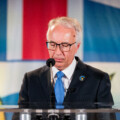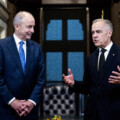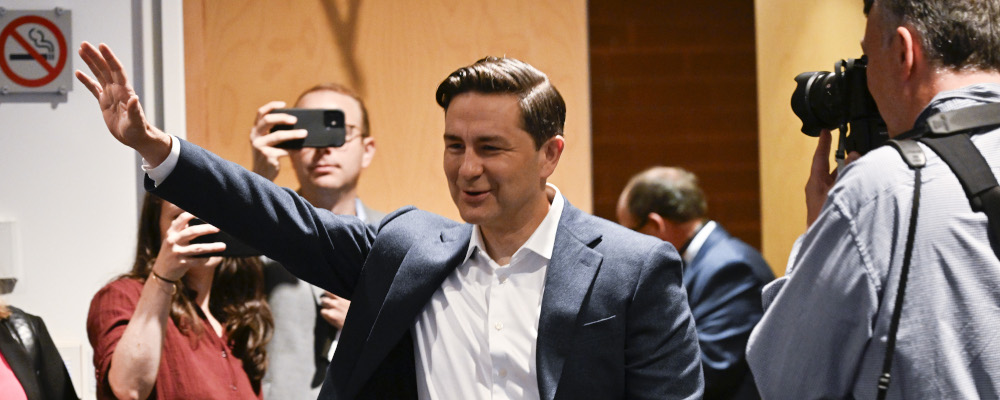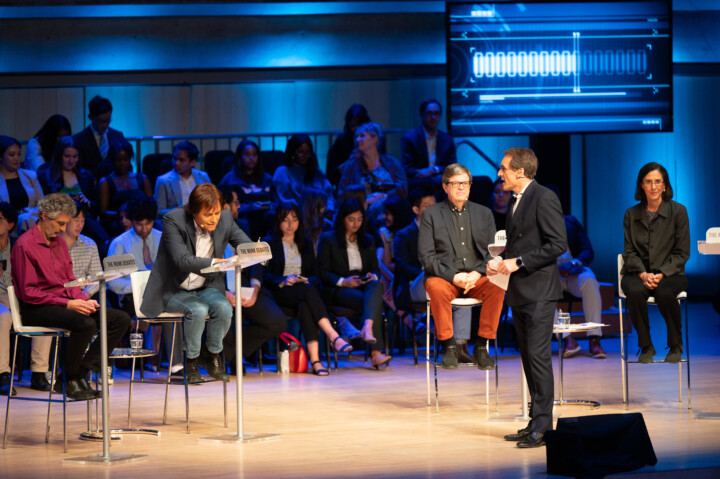When Pierre Poilievre became Conservative Party leader almost precisely twelve months ago, many commentators (including to a certain extent me) assumed that a considerable share of the country already had well-developed views about him and his politics.
There was a sense that his youthful reputation as a so-called “attack dog” had permeated beyond the parliamentary precinct to reach the broader public including those elusive swing voters that Conservatives need to overcome the relative inefficiency of their national vote.
Poilievre and his team ostensibly believed that those prevailing assumptions were wrong. Rather than bucking up against a hardened view of him as a polarizing political figure, the past year has actually involved introducing him to most Canadians for the first time. A summer tour and major advertising campaign have been the most notable manifestations of this concerted effort to present Poilievre’s personal story, his values, and political priorities to the country. A recent series of polls—including ones that show his personal popularity rising—tell us that they were right and the rest of us were wrong.
Last night’s speech to the Conservative Party’s convention in Québec City must be understood therefore as part of an ongoing process to introduce Poilievre to voters. Viewed through this lens, it was a highly effective evening that should continue to socialize them to the growing potentiality of a Prime Minister Poilievre.
It started with a multilingual introduction by his wife, Anaida Poilievre, who has proven to have something of the political “it” factor. Her personal story meshes so well with his own and his broader message about what he calls the “promise of Canada” that it was almost hard to discern the point where her speech ended and his begun. The growing view that she’s a major asset to her husband’s political ambitions was reinforced last night.
Poilievre’s own speech, based on my interpretation, had four different key components. It’s worth unpacking each of them to better understand the ideas and messages that we can anticipate from him and the Conservatives between now and the next election.
The first was an empirical takedown of the Trudeau government’s record against a backdrop of growing evidence of economic stagnation and social disorder. Poilievre drew on a range of data and proof points, including crime rates, food bank use, housing prices, and public spending, to convey a stark yet compelling story about the lousy state of the country.
It reflects his effectiveness as a political communicator. He’s uniquely able to absorb Statistics Canada data releases, think-tank papers, and other primary source materials, and compress them into a simple yet effective narrative—one that works in this particular case precisely because it connects to people’s own sense of their personal economy and household circumstances.
The second was a social mobility narrative that similarly draws on the personal stories of him and his wife. Anaida Poilievre’s remarks in particular about working as a teenager at McDonald’s were a powerful marker about who they are and the cultural and social milieu in which they’ve grown up. It’s a signal to middle-class Canadians across the country that they’re genuinely one of them.
I thought that most effective part of the speech was when he spoke of the “promise of Canada” (which he essentially defined as intergenerational mobility) as the “most important promise [that] Justin Trudeau broke.” Polling that shows a growing share of Canadians are anxious about their children’s future affirms this line of argument.
It works as a critique of the government but also as an anchor for Poilievre’s own forthcoming policy agenda. “Restoring the Canadian promise” is a powerful message that unites conservatives (I told Globe and Mail columnist John Ibbitson as far back as August 2020 that social mobility is “the very core of modern conservatism”), resonates with the broader public, and can manifest itself in a wide range of policy areas including education, employment, families, housing, immigration, regulations, taxes, and so on. It’s promising to see Poilievre and his team settle on it as an overarching framework for his policy priorities.
The third is what can be described as the speech’s “anti-woke” section which loomed larger than one might have anticipated perhaps due to the salience of these issues with Québec conservatives. Poilievre spoke of the Trudeau government’s general discomfort with expressions of nationalism and its tendency to look negatively upon Canada’s history and patriotic sense of itself. He raised in particular the need for English Canada to adopt Québec’s more affirmative sense of its own culture and history.
It suggests that we may come to see a more sustained “anti-woke” dimension to his critique of the Trudeau government. There’s reason to believe that such positioning could find resonance with Canadians based in large part on the nascent view that progressives have overreached with identity politics. It must involve however a careful balancing act for Conservatives to critique the inherent illiberalism of an identity politics based on immutable characteristics such as race, gender and sexuality without appearing indifferent to rare yet ongoing instances of discrimination.

The fourth was housing. This is where, as a matter of policy and politics, he’s at his strongest. Whether it was intuition or better polling, Poilievre has had first-mover advantage on the file for several months and it showed in his speech.
Not only does he have a strong command of the causes and factors that have led to runaway housing prices, but he’s out in front of the other party leaders with a concrete plan to address them. At this point, one gets the sense that the best that Prime Minister Trudeau can aim for is to neutralize the issue by essentially raiding his chief opponent’s ideas. Yet even that would seem like an implicit victory for Poilievre and the Conservatives.
There were of course other issues covered in the speech including crime, climate change, defence spending, deficits, and debt. But these topics were subordinate to his core appeal about restoring the “promise of Canada.”
After a year as Conservative leader, a key takeaway from last night’s convention speech is that Poilievre seems prepared to bet his political future on the ideas and messages outlined above. A key lesson over the past twelve months is that those of us in the commentariat would be wise not to underestimate such a bet.
Recommended for You

‘Overwhelmingly positive’: Hub Politics on how Canadians are feeling about the Carney-Smith energy alliance

The remarkable rise and spectacular fall of John Rustad, the B.C. premier who never was

Why Canada should follow in Ireland’s tax reform footsteps

‘This is going to get very messy’: Will Canada drop religious protections from its hate speech laws?




